13 start with F start with F
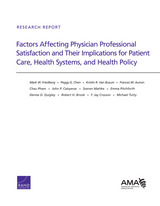

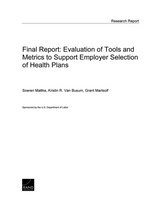

Among the most serious challenges facing health systems in lower and middle income countries is establishing efficient, fair, and sustainable financing mechanisms that offer universal protection. Lack of financial protection forces families to suffer the burden not only of illness but also of economic ruin and impoverishment. In Latin America, financial protection for health continues to be segmented and fragmented; health is mainly financed through out-of-pocket payments.
Financing Health in Latin America presents new and important insight into the crucial issue of financial protection in health systems. The book analyzes the level and determinants of catastrophic health expenditures among households in Argentina, Brazil, Chile, Colombia, Costa Rica, the Dominican Republic, Mexico, and Peru, applying both descriptive and econometric analyses. The results demonstrate that out-of-pocket health spending is pushing large segments of the population into impoverishment and that the poorest and most vulnerable segments of the population are most at risk of financial catastrophe. This work is a product of the collaboration between more than 25 researchers and 18 institutions associated with the Research for Health Financing in Latin America and the Caribbean Network, with support from the International Development Research Centre of Canada.
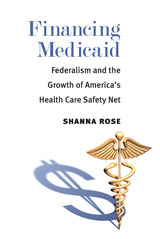
Conventional wisdom holds that programs for the poor are vulnerable to instability and retrenchment. Medicaid, however, has grown into the nation’s largest intergovernmental grant program, accounting for nearly half of all federal funding to state and local governments. Medicaid’s generous open-ended federal matching grants have given governors a powerful incentive to mobilize on behalf of its maintenance and expansion, using methods ranging from lobbying and negotiation to creative financing mechanisms and waivers to maximize federal financial assistance. Perceiving federal retrenchment efforts as a threat to states’ finances, governors, through the powerful National Governors’ Association, have repeatedly worked together in bipartisan fashion to defend the program against cutbacks.
Financing Medicaid engagingly intertwines theory, historical narrative, and case studies, drawing on sources including archival materials from the National Governors’ Association and gubernatorial and presidential libraries, Centers for Medicare and Medicaid Services data, the Congressional Record, and interviews.
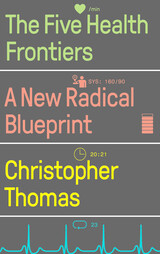
Covid-19 has exposed the limits of a neoliberal public health orthodoxy. But instead of imagining radical change, the left is stuck in a rearguard action focused on defending the NHS from the wrecking ball of privatization.
Public health expert Christopher Thomas argues that we must emerge from Covid-19 on the offensive - with a bold, new vision for our health and care. He maps out five new frontiers for public health and imagines how we can move beyond safeguarding what we have to a radical expansion of the principles put forward by Aneurin Bevan, the founder of the NHS, over 70 years ago.
Beyond recalibrating our approach to healthcare services, his blueprint includes a fundamental redesign of our economy through Public Health Net Zero; a bold new universal public health service fit to address the real causes of ill health; and a major recalibration in the efforts against the epidemiological reality of an era of pandemics.
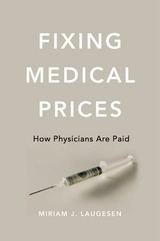
Medical care prices in the United States are not only the most expensive in the world, but there are wide variations in what physicians are paid. Doctors at the frontlines of medical care who manage complex conditions argue that they receive disproportionately lower fees than physicians performing services such as minor surgeries and endoscopies. Fixing Medical Prices goes to the heart of the U.S. medical pricing process: to a largely unknown yet influential committee of medical organizations affiliated with the American Medical Association that advises Medicare. Medicare’s ready acceptance of this committee’s recommendations typically sets off a chain reaction across the entire American health care system.
For decades, the U.S. policymaking structure for pricing has reflected the influence of physician organizations. What Miriam Laugesen’s rich analysis shows is how these organizations navigate the arcane and complex work of this advisory committee. Contradicting the story of a profession in political decline, Fixing Medical Prices demonstrates that the power of physician organizations has simply become more subtle.
Laugesen’s investigation into the exorbitant cost of American medical care will be of interest to those who follow the politics of health care policy, the influence of interest groups on rate setting, and the medical profession’s past and future role in our health care system.


Much has changed in the lives of children, and in the health care provided to them, over the past century. Formative Years explores how children's lives have become increasingly medicalized, traces the emergence of the fields of pediatrics and child health, and offers fascinating case studies of important and timely issues.
With contributions from historians and physicians, this collection illuminates some of the most important transformations in children's health in the United States since the 1880s. Opening with a history of pediatrics as a medical specialty, the book addresses such topics as the formulation of normal growth curves, Better Babies contests at county fairs, the "discovery" of the sexual abuse of children, and the political radicalism of the founder of pediatrics, Dr. Abraham Jacobi.
One of the first long-term historical and analytical overviews of pediatrics and child health in the twentieth century, Formative Years will be a welcome addition to several fields, including the history of medicine and technology, the history of childhood, modern U.S. history, women's history, and American studies. It also has ramifications for policymakers concerned with child welfare and development and poses important questions about the direction of children's health in the twenty-first century.

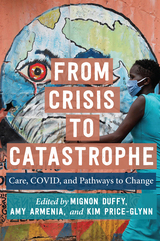
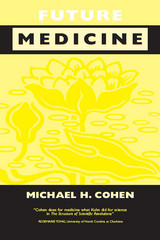
Through the use of fascinating and relevant case studies, Cohen presents stimulating questions that will challenge academics, intellectuals, and all those interested in the future of health care. In concise, evocative strokes, the book lays the foundation for a novel synthesis of ideas from such diverse disciplines as transpersonal psychology, political philosophy, and bioethics. Providing an exploration of regulatory conundrums faced by many healing professionals, Cohen articulates the value of expanding our concept of health care regulation to consider not only goals of fraud control and quality assurance, but also health care freedom, integration of global medicine, and human transformation.
Future Medicine provides a fair-minded, illuminating, and honest discussion that will interest hospice workers, pastoral counselors, and psychotherapists, as well as bioethicists, physicians and allied health care providers, complementary and alternative medical providers (such as chiropractors, acupuncturists, naturopaths, massage therapists, homeopaths, and herbalists), and attorneys, hospital administrators, health care executives, and government health care workers.
Michael H. Cohen is Director for Legal Programs, the Center for Research and Education in Complementary and Integrative Medical Therapies, Beth Israel Deaconess Medical Center, Harvard Medical School.

Americans are understandably concerned about the runaway costs of medical care and the fact that one citizen out of seven is without health insurance coverage. Solving these problems is a top priority for the Clinton administration, but as Victor Fuchs shows, the task is enormously complex. In this book Fuchs, America's foremost health economist, provides the reader with the necessary concepts, facts, and analyses to comprehend the complicated issues of health policy. He shows why health care reform that benefits society as a whole will unavoidably burden certain individuals and groups.
Fuchs addresses such central questions as cost containment, managed competition, technology assessment, poverty and health, children's health, and national health insurance. The future of U.S. health policy, he argues, is tightly linked to three basic questions; First, how can we disengage health insurance from employment? Second, how can we tame technological change in health care? And finally how can we cope with the runaway medical costs of an aging society?
READERS
Browse our collection.
PUBLISHERS
See BiblioVault's publisher services.
STUDENT SERVICES
Files for college accessibility offices.
UChicago Accessibility Resources
home | accessibility | search | about | contact us
BiblioVault ® 2001 - 2024
The University of Chicago Press









